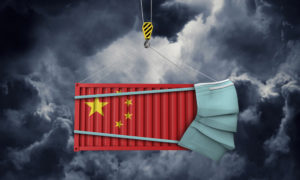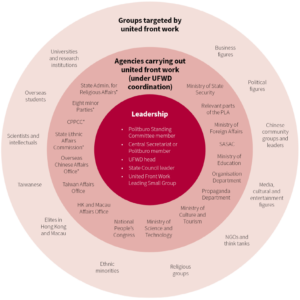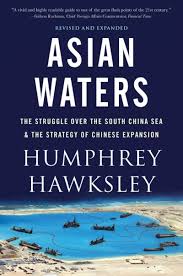
NED Forum/shutterstock
Australian Foreign Minister Marise Payne has criticized China for creating “disinformation” during the coronavirus pandemic, saying it “will cost lives,” Bloomberg reports.
“It is troubling that some countries are using the pandemic to undermine liberal democracy to promote their own more authoritarian models,” Payne said in a speech in Canberra on Tuesday. She cited a European Union report that said foreign actors including Russia and China had spread misinformation, along with Twitter’s ban of accounts linked to alleged disinformation campaigns from China, Russia and Turkey.
“The disinformation we have seen contributes to a climate of fear and division when what we need is cooperation and understanding,” she said.

Credit: IISS
In the first Covid-19 related case in China, a Wuhan family has filed a suit against the municipal government and a military hospital in Wuhan for failing to disclose information regarding a father’s fatal infection of Covid-19, demanding nearly two million RMB (about $285,000) in compensation, RFA reports. A court has accepted the suit but has yet to respond.
The EU must defend its values rather than caving to economic pressure from Beijing, analyst Ian Bond writes for Foreign Policy. Europe must now invest in diplomacy as well as arms, to insure itself against both an authoritarian China and an unreliable America. The rules-based order is not yet lost, but if Europe dithers in the face of Chinese pressure and U.S. distraction, it may well be, adds Bond, the director of foreign policy at the Centre for European Reform.
 China’s Confucius Institutes’ funding is tied to Politburo member Liu Yandong, who formerly led the United Front Work Department, notes analyst Tom Lindsay. Steven Mosher of the Population Research Institute testified before Congress that the United Front Work Department’s purpose is “to subvert, coopt, and ultimately control Western academic discourse on matters pertaining to China,” he writes for Forbes. NYU historian Jonathan Zimmerman cautions that Confucius Institutes bear an alarming resemblance to the 1930s “Mussolini model” of funding “Italian language centers” in the U.S. to promote Fascist propaganda.
China’s Confucius Institutes’ funding is tied to Politburo member Liu Yandong, who formerly led the United Front Work Department, notes analyst Tom Lindsay. Steven Mosher of the Population Research Institute testified before Congress that the United Front Work Department’s purpose is “to subvert, coopt, and ultimately control Western academic discourse on matters pertaining to China,” he writes for Forbes. NYU historian Jonathan Zimmerman cautions that Confucius Institutes bear an alarming resemblance to the 1930s “Mussolini model” of funding “Italian language centers” in the U.S. to promote Fascist propaganda.
With China on the defensive over the coronavirus pandemic, its diplomatic missions in the United States are on a charm offensive, organizing donations of medical supplies and food to communities large and small. All five of China’s consulates in the U.S., along with its embassy in Washington, have been involved, an NBC News investigation found.
“These things are always two-sided. There is a little bit of altruism, but because China is an authoritarian regime, they handle public relations differently,” said China expert Anja Manuel, a former State Department official who runs the Aspen Security Forum. “Underneath it is a pretty transparent effort for China to be seen more positively.”
 European governments must spell out that their national security and democratic values are not negotiable, and that the “like-minded” group of nations is far more powerful and cohesive than China’s one-party state, argues former BBC China Bureau Chief Humphrey Hawksley, whose latest book “Asian Waters: The Struggle Over the Indo-Pacific and the Challenge to American Power” (above) is published in this month.
European governments must spell out that their national security and democratic values are not negotiable, and that the “like-minded” group of nations is far more powerful and cohesive than China’s one-party state, argues former BBC China Bureau Chief Humphrey Hawksley, whose latest book “Asian Waters: The Struggle Over the Indo-Pacific and the Challenge to American Power” (above) is published in this month.
With its unusually blunt warning to China, accusing it of exploiting COVID-19 to undermine European democracy, the EU has shown a long overdue change of mindset after years of jumbled, divisive and largely reactive policies in dealing with Beijing, he writes for Nikkei Asian Review:
The European Commission said that China, together with Russia, was responsible for an unprecedented wave of misinformation about the pandemic. “We have evidence. We should not shy away from naming and shaming,” said Vĕra Jourová, European Commission vice-president. “A geopolitically strong EU can only materialize if we are assertive.” …Yet this was precisely when Beijing was building its military bases in the South China Sea, drawing up plans for the mass imprisonment of Xinjiang’s Uighurs and defining the international political landscape — in Karl Marx’s words — as a “struggle between two social systems,” meaning here the Communist Party’s authoritarianism against the West’s democracy.
China has made substantive inroads into European institutions, Hawksley adds. For example, in 2003, without government scrutiny, the U.K.’s biggest telecoms company, BT, hired the Chinese tech giant Huawei Technologies to build part of its network.
 China also has the edge over the United States in South East Asia, according to a recent Center for Strategic and International Studies survey of Southeast Asian “strategic elites,” the findings of which are largely in line with most recent survey report published by the Singapore-based ISEAS Yusof Ishak Institute (PDF), notes analyst Ankit Panda.
China also has the edge over the United States in South East Asia, according to a recent Center for Strategic and International Studies survey of Southeast Asian “strategic elites,” the findings of which are largely in line with most recent survey report published by the Singapore-based ISEAS Yusof Ishak Institute (PDF), notes analyst Ankit Panda.
China is gaining ground in the region and the United States is losing it, he writes for The Diplomat. The CSIS team, as its top finding, notes that “China is seen as holding slightly more political power and influence than the United States in Southeast Asia today and considerably more power relative to the United States in 10 years.”
The EU has a chance to turn the COVID-19 crisis into an opportunity. Identifying the threat of Chinese disinformation was an important step but now it is time to counteract it, argues Dr Demir Murat Seyrek, a Senior Policy Advisor at the European Foundation for Democracy. Democracy, the rule of law and fundamental rights are the biggest enemies of the authoritarian countries. Ultimately, freedom prevails over fear, he writes for Euronews.







